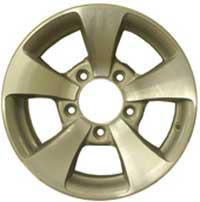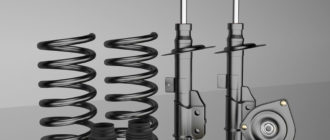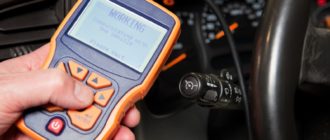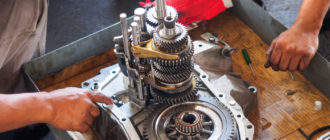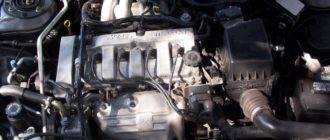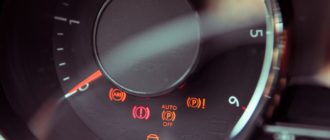If your car’s brakes are grinding, it’s natural to feel alarmed. After all, brakes are the most important safety feature on your car. Grinding brakes can indicate a serious problem with your braking system, and it’s one you should never ignore. While it’s important to have a mechanic inspect your vehicle as soon as possible, knowing why your brakes are grinding can help you understand what’s happening under the hood. In this article, we’ll explore the causes of grinding brakes and what they might signal.
Your car’s braking system is complex and comprises of multiple parts working together to slow and stop your vehicle. When any of these parts become faulty or worn, it can result in grinding or other abnormal noises. Grinding sounds when you press down on your brake pedal are usually caused by worn brake pads or shoes that need replacing. Other times, it could indicate a more expensive and challenging problem with your braking system, such as rotor damage or worn-out calipers.
Ignoring grinding brakes can lead to severe problems, like brake failure or a costly repair. When you hear grinding noises coming from your brakes, it’s crucial to make an appointment with your mechanic as soon as possible to avoid the dangerous consequences of ignoring the problem, like accidents, collisions, or any incident that can affect your safety and that of other road users.

source: https://www.mazdamarket.com/service/service-tips/brakes-grinding/
Why Your Brakes Are Grinding and What It Signals
When you hear a grinding noise coming from your brakes, it can be unsettling, but it’s important to address the issue before it leads to costly repairs. The most common cause of grinding brakes is worn brake pads, which can damage the rotors if not addressed promptly. Other potential culprits include rusted brake rotors or calipers, debris caught in the brake system, or a malfunctioning anti-lock brake system.
It’s important to note that grinding brakes are not just a nuisance but a safety issue. If your brakes are grinding, it means they are not working effectively, reducing the stopping power of your car and increasing the risk of an accident. It’s crucial to have your brakes inspected by a professional mechanic as soon as possible to identify and address the issue before it gets worse.
- So what are the warning signs of grinding brakes?
- You’ll notice a grinding or rubbing sound when you apply the brakes
- The brake pedal may feel spongy or may require more pressure to engage
- Your car might pull to one side when you apply the brakes
If you experience any of these warning signs, it’s time to take your car in for a brake inspection. Your mechanic will thoroughly inspect the brake system to identify the cause of the grinding noise and recommend repairs or replacement parts as needed.
The Reasons behind Grinding Brakes
Grinding brakes can be an alarming sound and should be inspected by a certified mechanic as soon as possible. The primary cause of grinding brakes is often worn brake pads. Over time, the friction material on the brake pads wears thin, causing the metal backing to grind against the rotor or drum. This results in a loud and abrasive sound, and further damage can occur if left unaddressed.
Another cause of grinding brakes can be a lack of lubrication on the brake calipers or hardware. When the calipers or slides become dry, the brake pads won’t release smoothly, leading to high levels of friction and heat. This creates a grinding sound which can damage the brake pads, rotors, and other braking components.
- Worn brake pads
- Lack of lubrication on brake calipers or hardware
- Malfunctioning brake hardware or components
Additionally, faulty brake hardware or components can contribute to grinding brakes. Worn out or damaged brake rotors, drums, or calipers can cause vibrations and metal-on-metal contact that result in the grinding noise. If the noise is accompanied by a pulsation or vibration while braking, it’s likely caused by damaged rotors that need replacement.
In conclusion, grinding brakes are a serious safety concern and should be inspected by a mechanic as soon as possible. Whether it’s worn brake pads, a lack of lubrication, or faulty components, addressing the issue promptly will prevent further damage and ensure safe driving on the road.
Signs of Worn-out Brakes
Brakes are an essential part of your vehicle that should not be taken for granted, and you should be aware of any signs that might indicate wear on your brakes. Grinding brakes are one of these signs, and you should be aware of what they mean and what you should do about them.
Some common signs that you have grinding brakes include an unusual noise when you press the brakes, a vibration, or a scratching sound. Another indication is that you have to apply more pressure to the brake pedals to stop the car. All these signs are essential to notice because they could lead to severe problems if not addressed promptly.
Apart from the sound, you should also pay attention to how the brake handles when you press on it. If the brake pedal feels spongy or goes all the way to the floor, there might be air in the brake system, or the brake pads might be worn out, and you need to replace them. If the car pulls to one side when you press on the brakes, this could be due to a malfunctioning brake caliper, and you need to get it checked out immediately.
Ignoring any sign of grinding brakes is likely to lead to more severe problems such as damaged rotors, which can be expensive to fix. Replacing brake pads and rotors should be a priority and needs the attention of a professional mechanic.
- Key Points to Keep in Mind:
- Grinding brakes are a sign of worn-out brakes
- Pay attention to unusual noises such as scratching or vibration
- Notice how the brake handles when you press on it
- Ignoring grinding brakes can lead to serious problems
- Replacement of brake pads and rotors should be done by a professional

source: https://www.cashcarsbuyer.com/how-much-does-it-cost-to-fix-brake-grinding/
Consequences of Ignoring Grinding Brakes
If you hear a grinding noise when applying your brakes, it’s important to have them checked as soon as possible. Ignoring this sound can lead to serious consequences that not only affect your vehicle’s performance but also your safety on the road.
A common reason for grinding brakes is worn down brake pads, which can eventually cause damage to other braking components like calipers and rotors. Failing to replace your brake pads can also lead to decreased braking power, resulting in longer stopping distances and an increased risk of accidents.
Ignoring grinding brakes can also lead to more costly repairs in the long run. In addition to damaging other parts of your braking system, neglecting to address an issue with your brakes can lead to more extensive repairs that could have been prevented with regular maintenance.
- So, what should you do if you hear your brakes grinding?
- First and foremost, take your vehicle to a trusted mechanic or brake specialist.
- Get an inspection to determine the cause of the problem and have any necessary repairs addressed promptly.
- Remember that preventative maintenance can go a long way in avoiding costly repairs and ensuring your safety on the road.
In short, ignoring grinding brakes can cause significant damage, affect your vehicle’s performance, and jeopardize your safety. Don’t wait until it’s too late to address this issue – have your brakes checked at the first sign of trouble.
Grinding brakes are typically caused by worn brake pads or shoes, which can damage the brake rotors or drums if not addressed promptly. It is essential to have your brakes inspected by a certified mechanic if you hear grinding noises while driving.
Yes, it is hazardous to drive with grinding brakes because it indicates that your brakes are no longer functioning correctly. Worn brake pads can cause your vehicle to take longer to stop, leading to accidents on the road. It is best to have your brakes inspected and repaired as soon as possible.
You can attempt to fix grinding brakes yourself, but it is highly recommended that you seek a professional mechanic to address the issue. Repairing brakes requires specialized skills and knowledge, and any mistake could result in dangerous consequences.
Brake pads typically last between 30,000 to 70,000 miles, depending on your driving habits and the type of brake pads used. It is essential to have your brake pads inspected regularly and replaced whenever they are worn down to prevent rotor or drum damage.
Brakes make noise for many reasons, including worn brake pads, glazed brake rotors, loose brake hardware, or dirt or debris stuck in the brake caliper. It is essential to have your brakes inspected by a certified mechanic to identify and fix the source of the noise.
The cost to repair grinding brakes varies based on the type of vehicle, the extent of the damage, and the cost of parts and labor. Typically, a brake pad replacement can cost between $150 and $300, while rotor or drum replacement can cost up to $600 or more. It is best to get a quote from a certified mechanic to determine the exact cost of repairs for your vehicle.
